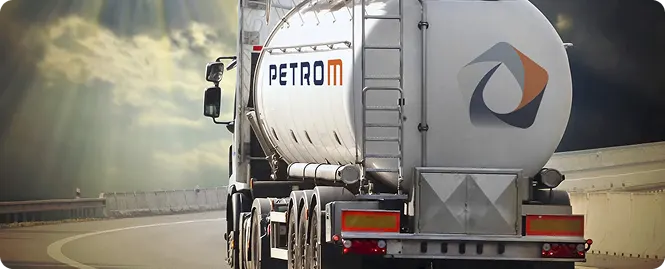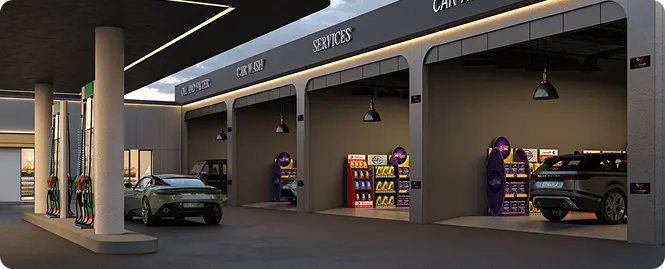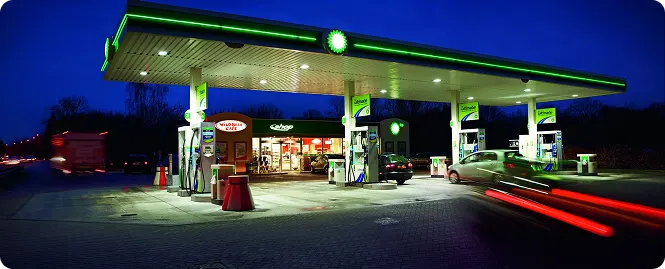How to Open a Gas Station in South Carolina
Table of Contents
Key Takeaways
-
Research the market and find a high-traffic area with strong demand for fuel and convenience store services to ensure profitability.
-
Outline your goals, financial projections, and operational strategies, covering aspects like personal assets, business loans, and profit margins.
-
Register your business, obtain permits, and comply with environmental regulations, including an environmental contingency clause.
-
Explore funding options like SBA loans and partnerships while selecting reputable fuel and equipment suppliers for smooth operations.
-
Develop a marketing strategy, train employees, and ensure regular maintenance to keep your gas station business running efficiently.
South Carolina's gas station industry is fueled by a steady demand for motor fuels, making it a promising venture for aspiring business owners. With high-traffic locations and the right marketing strategy, gas station owners can tap into strong profit margins. Whether you choose a gas station franchise or go independent, success depends on thoughtful planning, competitive pricing, and offering convenience store essentials. However, navigating legal requirements and financial risks is key to ensuring long-term profitability.
Opening a gas station in South Carolina isn’t just about pumping fuel—it’s about building a sustainable business. Every step makes an impact, from writing a business plan to securing funding and meeting regulatory requirements. Small business owners must also factor in personal assets, employer identification numbers, and business structures like sole proprietorships or limited liability companies. Understanding these crucial steps will help gas stations operate smoothly, minimize risks, and maximize success in this competitive industry.
Step 1: Researching the Market and Location
Think of your gas station as a pit stop for profit—the right location can make or break your business. In South Carolina, high-traffic highways, bustling intersections, and growing suburbs are gold mines for gas station owners. You’ll want a spot that’s easy to access, visible from the road, and ideally near convenience stores or retail hubs to attract steady customers. But don’t forget—zoning laws and environmental factors can impact where you can set up shop!
A great location is so much more than just foot traffic—it’s about getting the right type of foot traffic. Study local demand and traffic patterns to see where drivers are stopping for gas and where gaps in service exist. If there’s already a gas station on every corner, what makes yours stand out? Competitive pricing, top-tier customer service, or additional services like a car wash or food options can help you carve out your niche.
Understanding regional preferences helps run a successful gas station business. Do local drivers prefer full-service stations, or are they all about self-service speed? Offering perks like clean restrooms or a stocked-up convenience store keeps customers returning. Give them a reason to choose your station over the one down the street!
Step 2: Creating a Business Plan
Before you break ground on your gas station in South Carolina, you need a strategic roadmap to success—and that starts with a solid business plan. A well-crafted plan not only guides your operations but also helps attract investors and secure loans. It should cover everything from start-up costs to daily operations and long-term growth. Whether you’re launching a gas station franchise or an independent business, having a clear vision will set you up for success.
A strong business plan should include aspects such as financial projections, which outline the start-up expenses, operational costs, and expected profit margins. Factor in business loans, personal assets, and funding sources. Your marketing strategy should emphasize how you will attract more customer traffic—think competitive gas prices, loyalty programs, or convenience store promotions. Don’t leave out revenue goals, staffing plans, and a detailed analysis of how gas stations operate with high profitability in South Carolina’s market.
Your gas station business isn’t just about keeping the doors wide open—it’s about staying profitable for years to come. Thoroughly outline expansion plans, whether that means adding more fuel pumps, partnering with a franchise, or offering additional services such as electric vehicle charging or auto repair services. A strategy that is well thought out will help small business owners adapt to market changes and keep their gas stations competitive in South Carolina’s evolving fuel industry.
Step 3: Legal and Regulatory Requirements
Opening a gas station in South Carolina means checking all the legal boxes before you can start pumping fuel. You will need to register your business structure—whether it’s a sole proprietorship or limited liability company (LLC)—and obtain an Employer Identification Number (EIN) for tax purposes. Essential permits include a business license, fuel distribution permit, and environmental permits. If you're planning to sell alcohol or tobacco, expect additional licensing requirements to keep your operations compliant.
Before construction begins, ensure your gas station complies with South Carolina’s zoning laws. Some areas restrict where gas stations operate based on environmental impact, traffic concerns, and proximity to schools or residential zones. You must also include an environmental contingency clause in lease agreements to address potential hazards. Consulting with local authorities and securing proper approvals early on will help avoid costly delays and ensure your gas station business is built on solid legal ground.
To prevent fuel spills and contamination, gas station owners must adhere to strict environmental regulations. South Carolina enforces storage tank liability rules that may require proper installation, monitoring, and maintenance of underground fuel tanks. Compliance with pollution liability insurance will be useful when it comes to covering potential cleanup costs. Regular inspections and adherence to fuel storage regulations not only protect the environment but also safeguard your personal assets from hefty fines and legal issues.
Step 4: Securing Financing
Starting a gas station in South Carolina requires significant capital, but there are multiple financing options available. Many small business owners secure a business loan through banks, credit unions, or the Small Business Administration (SBA). Others seek investors or explore gas station franchise opportunities that have built-in funding assistance. Using personal assets as collateral is another option, but it carries risks. Choosing the right financing method is key to ensuring a stable and profitable launch.
To secure good funding, you will need to present a strong business plan that is backed by detailed financial projections. Prepare essential documents, which include profit margin estimates, operating costs, and revenue forecasts. Lenders will also review your credit history, business structure (LLC or sole proprietorship), and employer identification number (EIN). A well-prepared financial plan will demonstrate your ability to manage risks and protect your business, increasing the chances of loan approval or investor support.
South Carolina offers various government programs in order to support small business owners looking to open a gas station. The Small Business Administration (SBA) provides multiple funding options, while state and local grants may assist with environmental compliance or infrastructure development. Some programs even offer tax incentives for eco-friendly gas stations or those in underserved areas. Researching these funding opportunities can reduce financial strain and provide additional resources to help your gas station business succeed.
Step 5: Selecting the Right Equipment and Suppliers
Running a gas station business in South Carolina requires more than just pumps and fuel—it’s about efficiency and customer convenience. You’ll need high-quality fuel dispensers, underground storage tanks, and a reliable POS system to manage sales and inventory. Investing in modern payment systems that accept credit cards and mobile payments can improve customer experience. Safety measures, like leak detection systems and fire suppression equipment, are also crucial for protecting your business and meeting regulatory requirements.
Your fuel supplier can either make or break your business, so choosing a reliable partner is pretty crucial. Consider factors such as fuel quality, delivery schedules, and contract flexibility. Some gas station owners opt for branded suppliers, securing marketing support and customer trust, while others prefer independent suppliers for greater pricing flexibility. Negotiating fuel contracts wisely can help secure better pricing, protect against market fluctuations, and ensure a steady fuel supply for your gas station.
A gas station franchise or independent business thrives on more than just fuel sales—added services can also significantly boost your business profit margin. Consider setting up a convenience store to sell snacks, beverages, and essentials. Expanding with a car wash, auto repair service, or air pump station can attract more customers and increase revenue. Offering loyalty programs and promotions will help keep customers coming back, making your small business a go-to stop in South Carolina.
Step 6: Building and Designing the Gas Station
Designing a gas station business in South Carolina requires careful planning to ensure functionality and efficiency. Your layout should include spacious fueling areas, clear signage, and a well-positioned convenience store for easy access. Investing in a modern, well-lit design can enhance safety and attract more customers. Consider adding ample parking, canopies for shade, and energy-efficient lighting to improve the overall experience. A well-planned gas station and convenience store can maximize traffic flow and boost revenue.
A well-designed gas station isn’t just about looks—it must also meet the set safety and accessibility standards. Ensuring compliance with South Carolina’s building codes, fire regulations, and ADA requirements is both required and necessary. Install emergency shut-off systems, fire suppression equipment, and spill containment measures to protect the customers and employees. Wide driveways, clear traffic flow, and handicap-accessible entrances will make your station more welcoming and convenient, reinforcing trust and ensuring your business runs smoothly.
Your gas station’s layout and atmosphere can impact customer satisfaction and profit margins. A well-organized space with clear pathways, bright lighting, and easy-to-navigate store aisles encourages purchases. Offering fast checkout, well-placed impulse buys, and a clean environment ensures a positive experience, making your station a preferred stop for local drivers.
Step 7: Hiring and Training Employees
Finding the right employees is key to running a successful gas station business in South Carolina. You may need friendly cashiers, reliable maintenance staff, and experienced managers to handle daily operations. Look for candidates who display strong customer service skills, attention to detail, and problem-solving abilities. Conduct thorough interviews, check references, and consider background checks for security. A well-trained team enhances efficiency, keeps customers happy, and helps maintain a positive reputation for your small business.
Once hired, your employees will be needing proper training in safety protocols, customer service, and operational procedures. Train staff on skills such as handling fuel transactions, preventing theft, and responding to emergencies which can include fuel spills or fires. Teaching employees how to upsell convenience store items can also increase revenue. A well-trained team ensures smooth operations, minimizes risks, and keeps your gas station and convenience store running efficiently while providing a great customer experience.
Efficient employee scheduling and payroll systems maintain productivity and prevent burnout. Automated scheduling tools help manage shifts fairly and ensure adequate coverage during peak hours. Implementing digital payroll systems simplifies wage calculations, tax deductions, and direct deposits. Keeping employees paid on time and scheduled efficiently boosts morale and enhances efficiency.
Step 8: Marketing and Promotion
Launching a gas station business in South Carolina requires clever local advertising to attract customers. Use billboards, radio ads, and direct mail campaigns to spread the word about your grand opening. Offering limited-time fuel discounts and promoting your convenience store specials can drive more foot traffic. Hosting a grand opening event with giveaways and local partnerships helps create buzz. The goal is to make your gas station a recognizable and trusted stop in the community.
Social media can be a powerful tool when it comes to marketing for your gas station. Create engaging content that showcases your fuel prices, promotions, and convenience store deals. Launch loyalty programs to reward repeat customers with fuel discounts or free items. Offer referral bonuses, flash sales, and exclusive discounts through social media platforms. Running seasonal promotions and engaging with customer feedback online strengthens your reputation and encourages more people to visit your gas station.
Partnering with local businesses, schools, and community organizations helps boost your gas station’s visibility. Sponsoring local events, supporting charities, or teaming with food vendors can attract more customers. Collaborating with rideshare drivers, delivery services, or fleet businesses creates steady fuel sales, giving your gas station business an ongoing competitive advantage.
Step 9: Ongoing Operations and Maintenance
Running a gas station business in South Carolina can involve managing fuel inventory, tracking sales, and adjusting pricing based on the current market trends. Efficient inventory management ensures that fuel and convenience store stock never runs low. Using real-time pricing software will help you stay competitive while maximizing profit margins. Monitoring daily customer traffic patterns and adjusting staffing accordingly keeps operations smooth. A well-organized gas station ensures steady revenue, satisfied customers, and long-term business success.
Regular maintenance and safety checks are crucial for operating a gas station business. Make sure that your station’s fuel dispensers, storage tanks, and POS systems function properly to avoid any unnecessary disruptions. Routine inspections for leaks, fire hazards, and environmental compliance help prevent costly fines. Keeping the store clean, well-lit, and stocked with essential items will enhance the overall customer experience. Compliance with South Carolina’s safety and environmental regulations protects both your business and the community.
Customer feedback is invaluable for improving your gas station business. Encourage reviews through loyalty programs, surveys, and social media engagement. Offering seasonal promotions, adding new convenience store products, or upgrading facilities based on customer needs keeps your station competitive. Happy customers lead to repeat business and strong word-of-mouth referrals.
Conclusion
Starting a gas station business in South Carolina requires careful planning, market research, securing financing, obtaining permits, and setting up operations. From choosing the right location to marketing and maintaining daily operations, each step plays a crucial role in achieving long-term success. A well-structured plan ensures profitability and business growth.
Getting insurance is essential for gas stations in order to protect against property damage, liability claims, and unforeseen disasters. Policies like general liability, workers’ compensation, and commercial property insurance help protect your business, employees, and assets. Comprehensive coverage ensures financial security, minimizes risks and keeps your gas station running smoothly.










